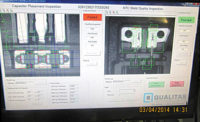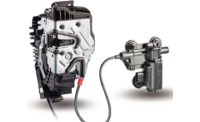SaaS Platform Improves Traceability of Automotive Components

Kendrion makes various electromagnetic automotive products, including brakes. Photo courtesy Kendrion N.V.

Electromagnetic solenoids like this one enhance vehicle performance and driver comfort. Photo courtesy Kendrion N.V.


Electromagnetic solenoids and actuators are popular in the automotive industry, and for good reason. Besides being much quicker and easier to install than pneumatic or hydraulic models, the components enhance vehicle performance and driver comfort.
Amsterdam-based Kendrion N.V. has been making electromagnetic solenoids and actuators since 1911. Today, the company operates 20 production plants worldwide and is comprised of three main divisions: automotive, industrial brakes, and industrial actuators and controls. Its other products include smart sensors, clutches, electronic control systems, valves and industrial heating for manufacturing.
Until last fall, Kendrion used a different software program at each division for part traceability during product development and assembly. This approach made it difficult to integrate new tools and processes, resulting in ongoing inefficiency.
To eliminate this problem, the company decided to implement a single product lifecycle management (PLM) platform across all divisions. It chose the cloud-based Enterprise SaaS (software-as-a-service) platform from Aras Corp. XPLM, a certified Independent Software Vendor partner of Aras since 2012, performed the integration.
“A move to the cloud provides [us] with dynamic scalability and easier integrations, delivering a framework for innovative teamwork across the globe,” says Pascale Cornut, chief information officer at Kendrion. “Cloud-based PLM enables greater resiliency across the lifecycle, and Aras provides a flexible approach that is necessary to create, manage and optimize a dynamic digital thread.”
The open API architecture of Enterprise SaaS greatly appealed to Kendrion during its selection process. For one thing, this structure allowed the company to seamlessly integrate its enterprise resource planning (ERP) tools across the organization. Equally important, it let Kendrion easily upgrade its then-current IFS 9 ERP to the IFS SaaS version.
Another thing Kendrion likes about Enterprise SaaS is the higher level of control it offers. Workers can easily customize the platform for each application, including upgrading the system on demand. A low-code DevOps feature ensures the reliability of this integration and deployment to improve each product’s overall time to market.
According to Cornut, workers at Kendrion use the platform to regularly send map requirements to engineers. The platform has also greatly reduced their dependency on manual spreadsheet-based processes, while increasing access to product information.
Two other key platform features are innovator capabilities and application connectors (including those from third-party vendors). The capabilities range from external authentication, 3D CAD conversion and 3D/PDF view and markup, to PDF watermarking and document publishing, self-service reporting, enterprise search and vault replication.
Aras-specific connectors include program, quality and simulation management; component and requirements engineering; systems architecture; and a digital twin core.
By complying with SOC2 and CSA STAR standards, Enterprise SaaS guarantees the security, availability and confidentiality of all critical data. Both certifications also minimize the exposure of sensitive information and the risk of a data breach.
Finally, each SaaS subscription includes unlimited training and the cloud infrastructure, which uses the Azure computing service operated by Microsoft at its data centers. Well-known automotive customers of Aras software platforms include Audi, DENSO Corp., Honda Motor Co., Kawasaki Motors Corp., Mitsubishi Motors Corp. and Nissan Motor Corp.
For more information on cloud-based software, call 978-806-9400 or visit www.aras.com.
Looking for a reprint of this article?
From high-res PDFs to custom plaques, order your copy today!








